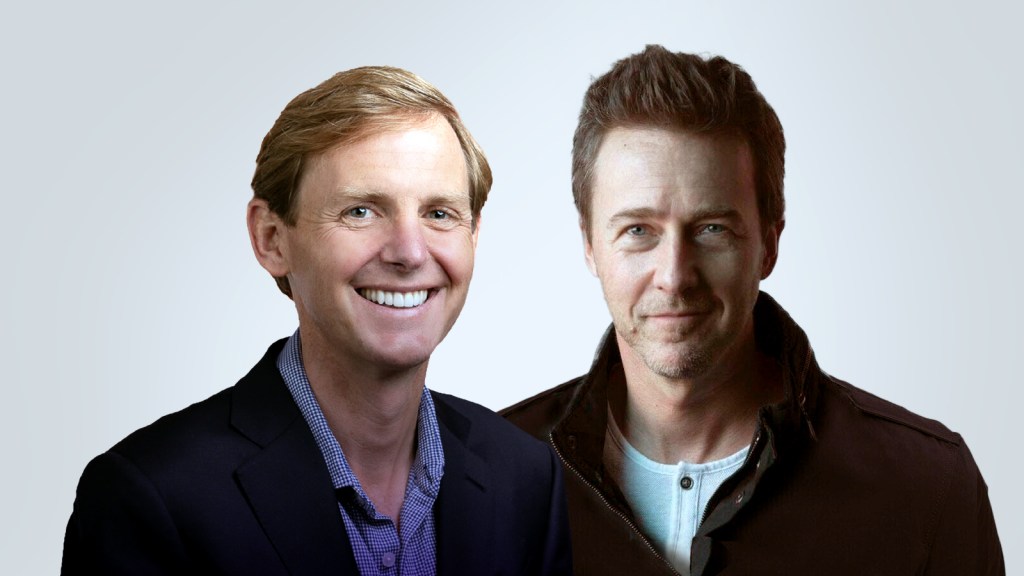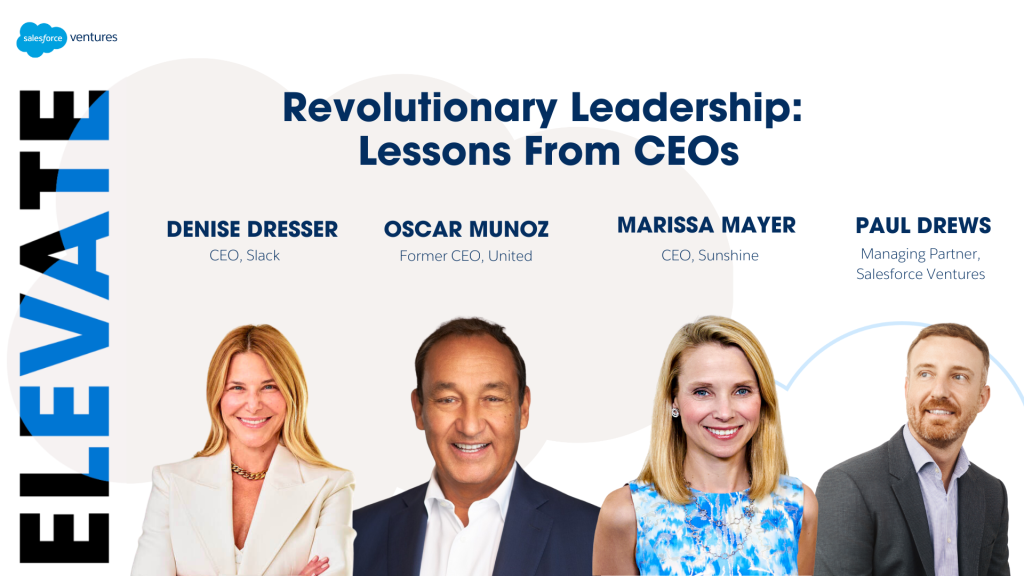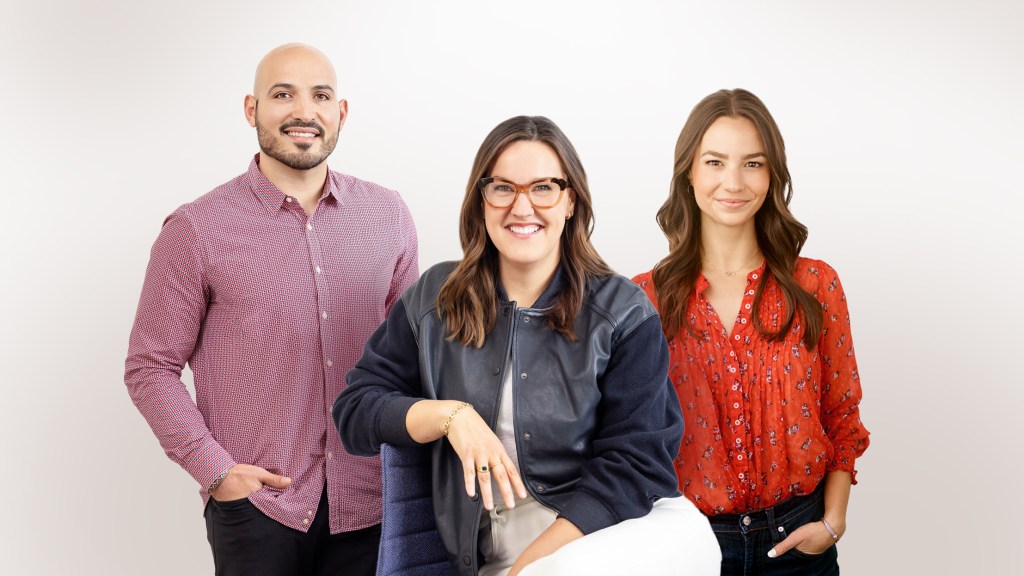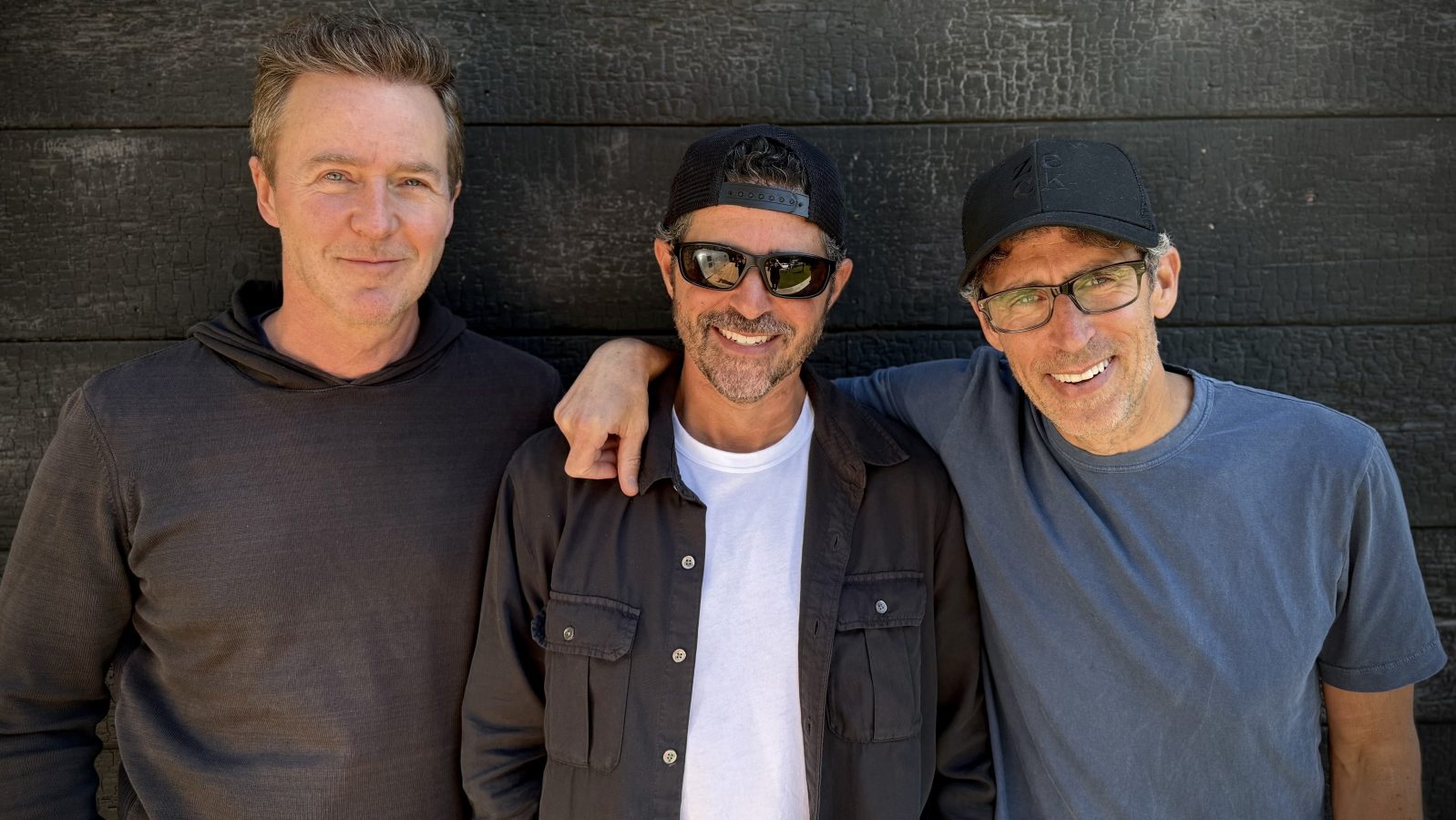Zeck is an AI-powered platform used by 10K+ CEOs, CFOs, and board members to create custom and interactive board updates for more productive meetings. Salesforce Ventures led Zeck’s Series A in 2024 because we believe in their team’s ability to transform board management and governance workflows. Our investment team recently caught up with co-founders Robert Wolfe and Edward Norton for a conversation on why they started Zeck, the lessons they’ve learned along the way, what they’d do differently, and so much more.
The following is a transcript of their conversation, lightly edited for clarity and style.
Rob Keith: What inspired you to start Zeck?
Robert Wolfe: At our prior two companies, Moosejaw, acquired by Walmart, and CrowdRise, acquired by GoFundMe, we spent ages building our board decks and hosted hundreds of board meetings that mostly felt like a massive waste of time for everyone involved. Great people stuck writing and reading static decks in a format no one engages with anymore. We built Zeck to reimagine the entire archaic board meeting process. We wanted to create something modern, collaborative, and entirely strategic.
Rob Keith: Why did you decide to partner with Salesforce Ventures?
Robert Wolfe: I mean, it’s Salesforce Ventures. I don’t want to be too crazy but it’s sort of liking asking why you’d want Tom Brady to be your quarterback.
In all seriousness though, when it came time for our Series A round, we weren’t looking for just capital — we wanted true strategic partners who understood B2B SaaS, had empathy for operators, and could plug us into a meaningful ecosystem. Salesforce Ventures stood out because your team came across as extremely founder-first. You didn’t just ask for our deck (or in our case, our Zeck) — you wanted to understand the problem we were solving. And I think our mission resonated deeply because it was a problem Salesforce Ventures was living on a day to day basis as board members at various companies. So the alignment felt really strong.
Rob Keith: What are your ambitions as you scale Zeck?
Robert Wolfe: Right now, we are maniacally focused on transforming the board meeting process. But, entirely organically, our customers are using Zeck for lots of other use cases — investor updates, fundraising, pitches, internal leadership meetings, etc.
Really anytime you want your Zoom or live meeting to be a conversation instead of just a lecture, Zeck is the go-to option. So, it would be epic if Zeck became the default platform for more efficient, fun and way more productive meetings.
Edward Norton: Zeck should be every bit as much of a default management tool as Carta or DocuSign. I dream of a day when nobody has to suffer receiving any version of the dreaded deck of slides.
Rob Keith: What’s the best piece of advice you’ve received as a founder?
Robert Wolfe: We were raising money at our prior company, CrowdRise. I hopped off a call with a potential investor and told him that I would send our deck along. He said, “don’t send me a deck — send me something so concise that I can read it at a red light on my phone.”
I told him you have to be a badass to say something like that and he was. He was a guest judge on “Shark Tank,” actually. That was a great lesson for us and also a catalyst for so much of the work we’re doing at Zeck.
Rob Keith: What’s the worst advice you’ve ever received?
Robert Wolfe: I used to think that no one knows what they’re doing, including me. So, I didn’t want to get advice from anyone. We didn’t have a board or any advisors for years at Moosejaw. That was a mistake. Getting advice from people who have done it and failed and learned from it so that you don’t have to make the same mistakes is wildly valuable. And there are just a lot of really smart people out there to learn from.
Robert Keith: What has the experience of building Zeck taught you?
Edward Norton: I thought that nobody could hate board presentations more than I do. I’ve learned that there are literally millions of people whose hatred and resentment runs even deeper, because they are the ones who have to build them.
Rob Keith: If you were starting Zeck from scratch today, what would you do differently?
Robert Wolfe: Coming off Moosejaw and CrowdRise, where we had hundreds of people doing customer service, we wanted Zeck to be entirely product-focused without much of a customer service team. So we launched with zero customer service staff. That was a mistake.
We’ve recovered 100% and service is now a major priority for us. We have some awesome systems and service is clearly a valuable differentiator for us. We get positive feedback from our customers about it daily. They’re always shocked by our service and speed. It’s been an awesome flip for us.
Rob Keith: What’s the most controversial opinion you have about building a business?
Robert Wolfe: Not sure they’re controversial but I’ll list our Zeck rules…which we also used at Moosejaw and CrowdRise.
- No sorries. We know we’re gonna make mistakes. We just want to be great at fixing ‘em.
- No yawning. We like lots of energy. If you want more coffee, we’ll take care of that.
- The Little Things. We’re obsessed with the little things. Great emails to customers and to each other, awesome follow-ups, etc.
- Do What You Say You’re Going to Do. We have a super collaborative work environment where people create their own deadlines. That only works if everyone on the team does what they say they’re gonna do.
- Speeeeeeeeed. It’s really challenging to always be the smartest. Our goal is to be the fastest.
- Have fun. We work really really hard. We’re grinders. We want to have as much fun as we can while we do it.
Rob Keith: What skills have you had to develop to be successful as a leader?
Robert Wolfe: I’m obsessed with the brand building process. I love it and think it’s super important. I used to run all of it. That wasn’t particularly efficient. I’ve had to learn to let that go. Fortunately, we have an amazing team at Zeck and we’ve all worked together for years. We definitely speak the same language around the brand and I’ve learned to not live in it every waking moment. It’s still almost every moment but I’m getting better at delegating and trusting our team entirely.
Rob Keith: What’s your process for making decisions when there’s no obvious right answer?
Robert Wolfe: We always err on the side of whatever is best for the customer. That usually makes the decision-making process easier. Beyond that, my partners and I have always had a rule that whoever is more passionate wins. That has also worked well for us.
Rob Keith: What role can Salesforce Ventures play in Zeck’s continued growth and success?
Robert Wolfe: Continue to be awesome and caring advisors. Your team is normal and fun and doesn’t just live in a spreadsheet. You understand the domino effect of decision-making and how insanely challenging running a company can be for the leadership team. This is our third company and sometimes I think I’m crazy for doing this a third time. But it makes a big difference when you have partners that understand the non-stop challenges.
Rob Keith: What advice do you have for other entrepreneurs just starting their business?
Robert Wolfe: Surround yourself with advisors who have been (or are) operators and not just purely financial partners.
Rob Keith: Ed, is there anything from your career in entertainment that you’ve been able to apply to building Zeck?
Edward Norton: Empathy is pretty key to both. Being able to cry on cue and learn banjo really fast have surprising utility as well.
Rob Keith: What excites you guys about the future of Zeck?
Robert Wolfe: If we’re right about the idea that people don’t want their meetings to be lectures and that conversations are far more productive, then Zeck can truly be a game changing platform. That would be really cool and fun.
_
To learn more about Zeck, visit their website. To receive Salesforce Ventures content directly in your inbox, sign up for our newsletter.






